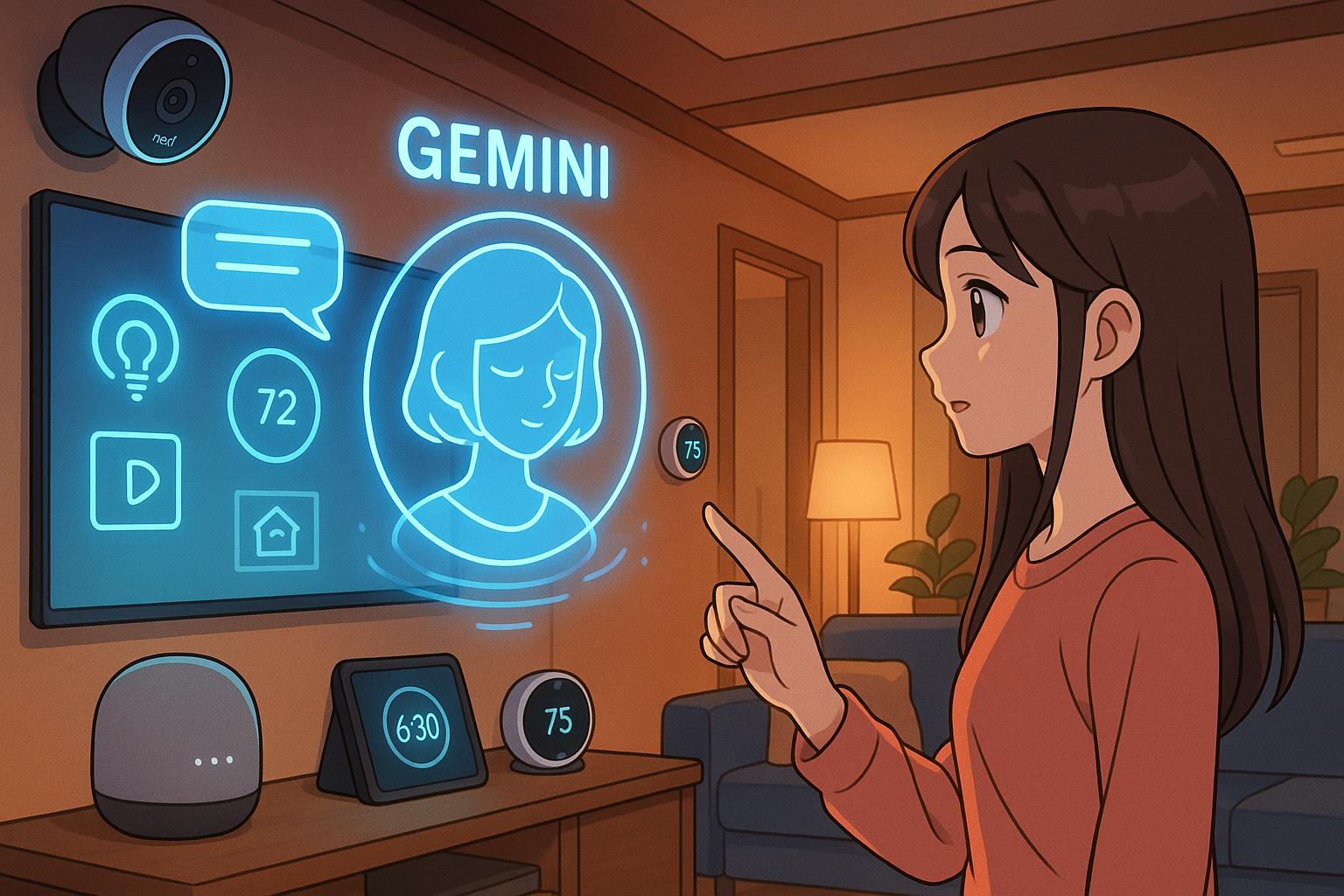Google's recent I/O developer conference showcased a significant leap forward for the company’s foray into smart home technology, with a notable emphasis on artificial intelligence. A central theme of the conference revolved around how Google intends to integrate its newly developed Gemini AI into its smart home offerings, poised to transform user interactions and automation processes within the home environment.
Last year marked a pivotal point for Google as it opened its Home APIs to developers, prompting innovative integrations by companies such as ADT and Eve, with Hisense joining the ranks more recently. This strategy not only expanded the ecosystem but also signalled Google’s intent to empower developers and enhance user experience within the smart home arena. The potential of these integrations becomes apparent in the context of Gemini's anticipated capabilities, which aim to simplify automation creation for homeowners.
At the heart of this integration is the "Help Me Create" feature demonstrated by Google, which allows users to generate bespoke automations for their Nest systems through voice commands. Initially offered only to selected Nest Aware Plus subscribers, this feature exemplifies the shift towards user-friendly interfaces—a trend echoed by other smart home entities. Nice, for instance, has similarly prioritised simplifying automation creation through its AI-driven voice assistant within its NiceOS updates. Both companies appear to be striving towards a future where even those without technical backgrounds can personalise their smart home experiences.
The Gemini AI, according to Google’s announcement, is designed to not only facilitate the automation process but also engage in a conversational manner with users, offering suggestions based on historical usage patterns and contextual data. For instance, if a homeowner were to programme their sprinklers, Gemini could assess previous rainfall data to determine the necessity of activation. Such contextual intelligence mirrors the advancements seen in other smart home solutions, notably the contextual approach taken by Josh.ai, which has led the way in AI-driven control systems since 2023.
Moreover, with Gemini's eventual integration into devices such as connected smart speakers, displays, and Google TV, Google is poised to broaden access to smart home control. This multifaceted approach has the dual advantage of democratizing smart technology—lowering costs and simplifying user access—while simultaneously elevating the standard for automated home systems. Despite the promise of these innovations, whether Gemini can match the sophistication of established systems remains an open question.
The broader implications of Google's initiative extend beyond technical advancements; they signal a significant shift in how AI is influencing consumer technology. As these capabilities are rolled out—expected for Nest Aware subscribers in a Public Preview later this year—home automation is likely to become more intuitive, blending seamlessly into the fabric of daily life and significantly modifying user experience in smart homes.
While the integration of Gemini signifies an exciting chapter for Google and its users, it will be essential to monitor how effectively these features are adopted across the DIY and professional landscapes of the smart home market. As tech continues to evolve, the emphasis on practical and accessible interfaces will likely shape the future of home automation, making it an accessible frontier for all homeowners.
Reference Map:
- Paragraph 1 – [1], [2]
- Paragraph 2 – [1], [3]
- Paragraph 3 – [1], [4]
- Paragraph 4 – [1], [5]
- Paragraph 5 – [1], [6]
- Paragraph 6 – [1], [5]
Source: Noah Wire Services
